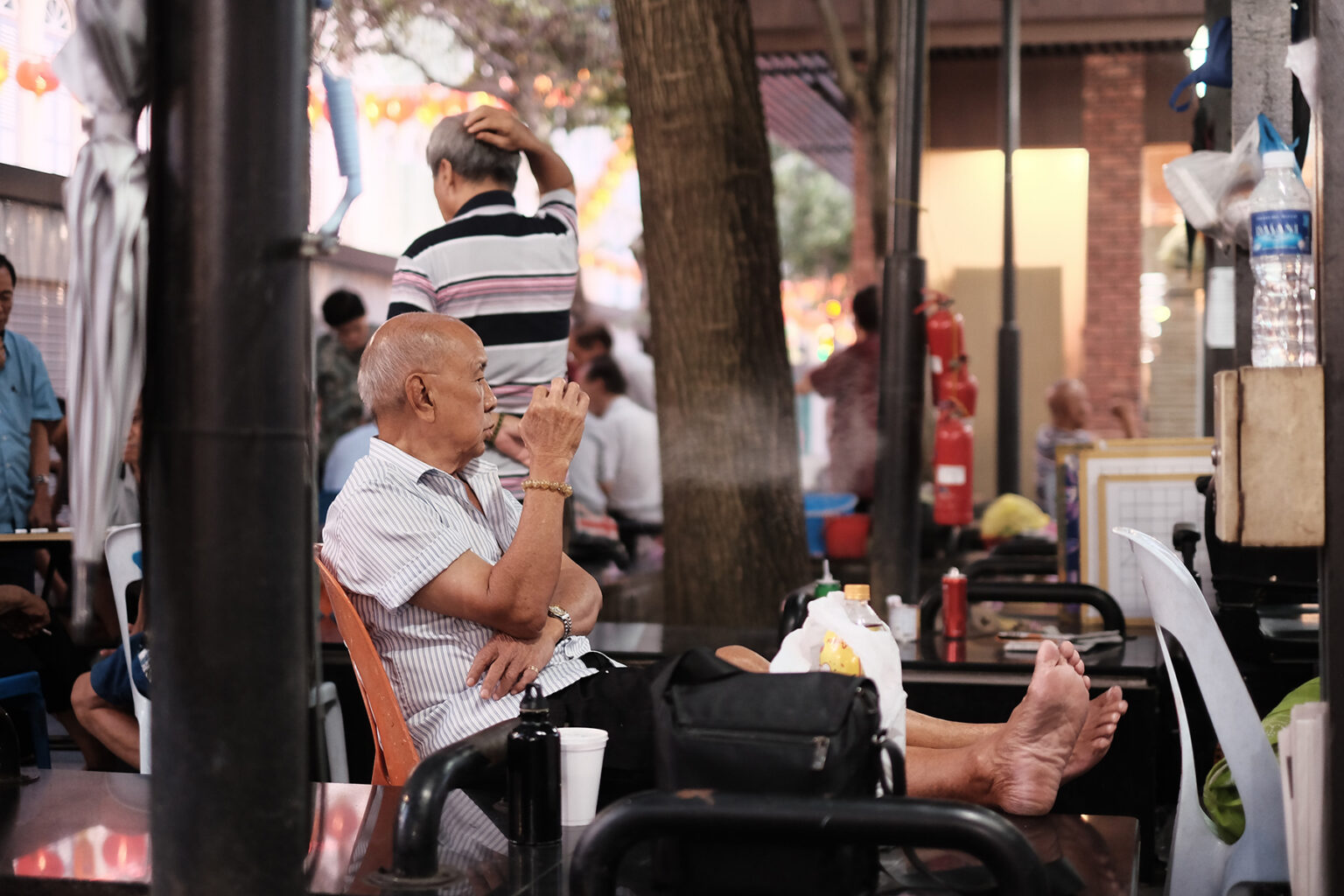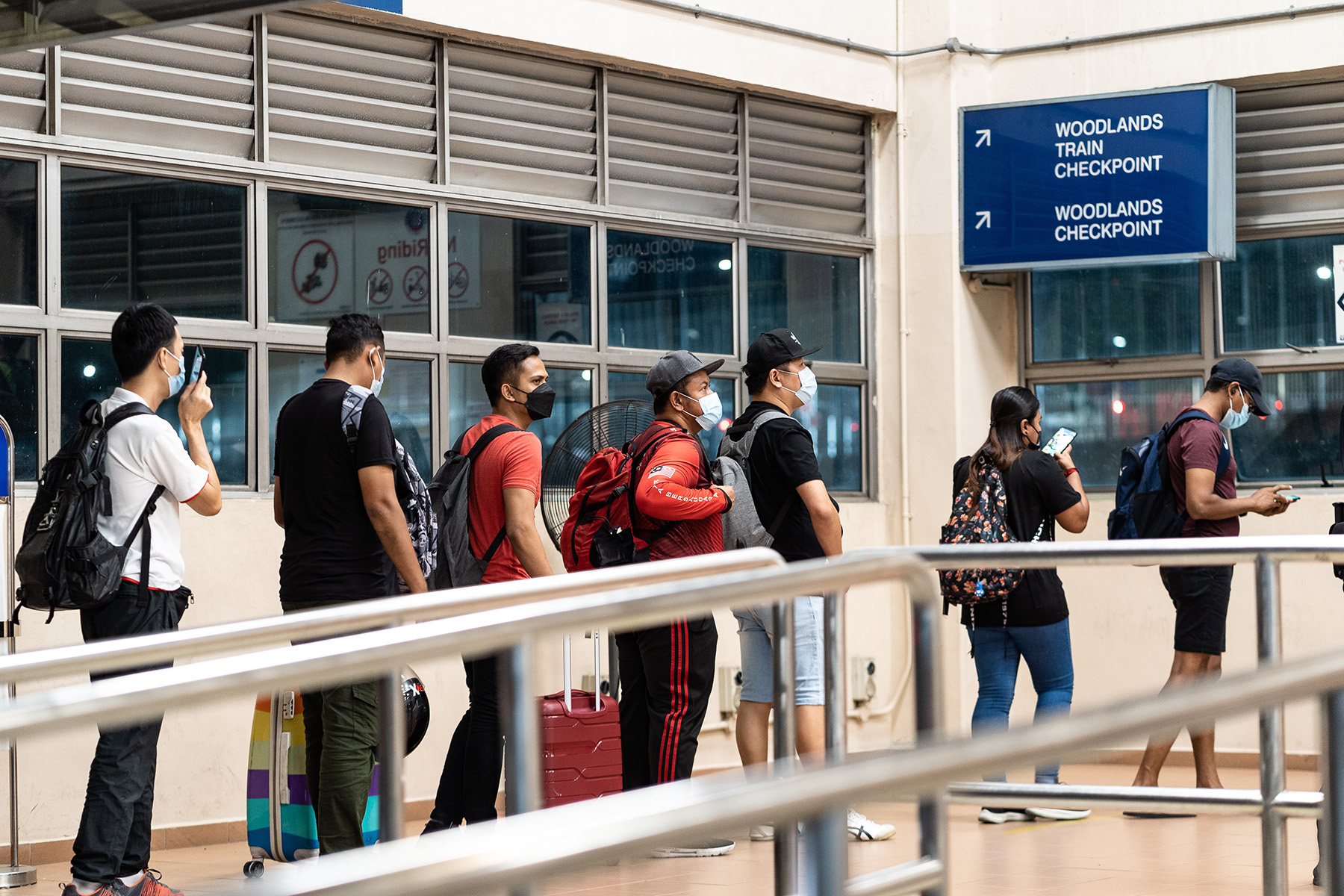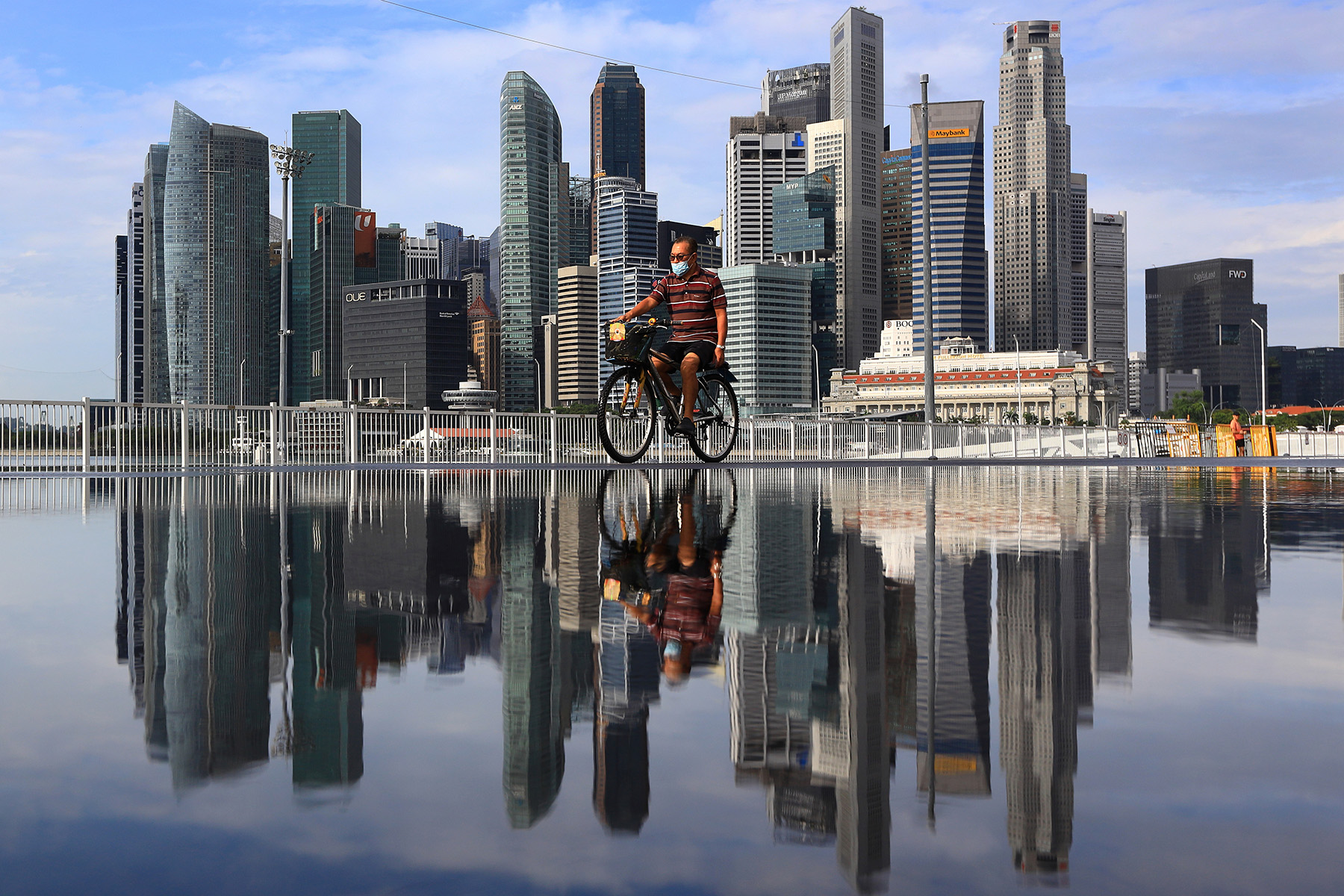Whether you want to be at the heart of a vibrant city or prefer a more chilled-out lifestyle, Singapore offers something for everyone. It has a thriving expat community but high property prices to match.
Most expats move to Singapore to work, so if you want to retire, you’ll need to navigate some tricky visa requirements first.
Read on to learn more about retiring in Singapore, including information on the following:
- Retiring in Singapore
- Who can retire in Singapore?
- Pensions in Singapore
- Best places for expats to retire in Singapore
- Services, organizations, and clubs for retirees in Singapore
- Wills and inheritance in Singapore
- Healthcare for pensioners in Singapore
- Access any other support services when you retire in Singapore
- Useful resources
Allianz Care
Allianz Care is a world leader in providing international health insurance. Their various premiums provide professionally designed solutions for a variety of expat lifestyles. So, wherever your life takes you, make sure you have the right health protection for you and your family with Allianz Care.
Retiring in Singapore
Expats are attracted to Singapore for its great standard of living, excellent healthcare, and low taxes. Data from Population in Brief (PIB, 2023) shows nearly 1.8 million foreigners live in Singapore, making up 29% of its population. The city-state is particularly popular with Australian, American, and Indian expats.
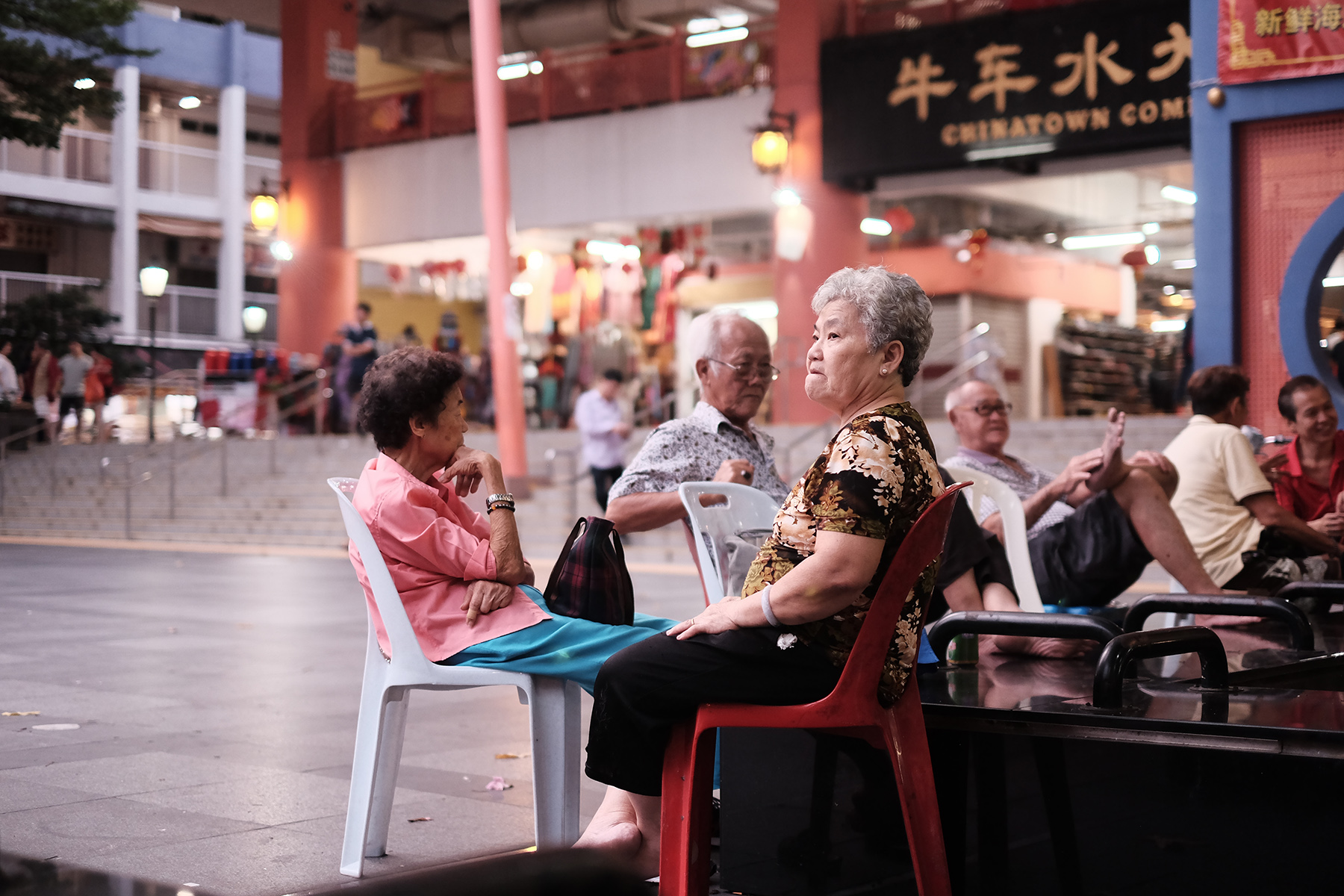
As with many countries worldwide, Singapore faces challenges brought about by an aging population. One in five residents (19%) are aged over 65. This figure is expected to rise to 24% by 2030.
Retirees in Singapore must ensure they have enough savings to combat a high cost of living. In 2023, the Economist Intelligence Unit named Singapore the most expensive city in the world for the ninth time in eleven years. A report by HSBC also found that six in 10 Singaporeans expect to work beyond their retirement age, as they anticipate needing more than S$1 million to fund a comfortable retirement.

Local expert
Gayatri Bhaumik
Unlike some countries, Singapore doesn’t incentivize affluent foreigners to make the move, so obtaining permanent residency will be challenging unless you already work in Singapore or have family links.
Who can retire in Singapore?
Singapore doesn’t offer retirement visas or run preferential residency programs for internationals. In the vast majority of cases, foreign retirees must have worked in Singapore before being permitted to stay during retirement.
The most common route to a long-term stay in Singapore is by obtaining permanent residency. To apply for permanent residency, you’ll need to meet one of the following criteria:
- You are the spouse of a Singaporean citizen or permanent resident
- You are the aged parent of a Singaporean citizen
- You hold an Employment Pass, ‘S’ Pass, EntrePass, or are a student
- You are a foreign investor in Singapore applying under the Global Investor Programme
Spousal visa
If you are married to a Singaporean citizen or permanent resident, you (and any children you share below the age of 21) can apply for permanent residency.
The likelihood and speed of approval will depend on the assessment of a series of factors, including your income, educational background, and the duration of your marriage. It is common to wait at least two years after getting married before applying. Applicants sponsored by a Singaporean citizen rather than a permanent resident may also have a greater chance of approval.
Employment Pass or ‘S’ pass
Both of these visas are designed for internationals working in Singapore. If you obtain an Employment Pass or ‘S’ Pass before age 50 and use it to secure permanent residency, you’ll be entitled to stay in Singapore during retirement.
The Employment Pass is designed for highly skilled workers. To obtain one, you must be contracted to an employer in Singapore and earn above a minimum income threshold, which varies by age. For example, a worker aged 30 must earn at least S$6,750 a month (S$7,409 if working in financial services), while someone aged 45 or above must earn at least S$10,500 per month (S$11,500 in financial services). If you earn at least S$6,000 a month, you can bring your spouse and children into the country on a ‘Dependant’s Pass.’
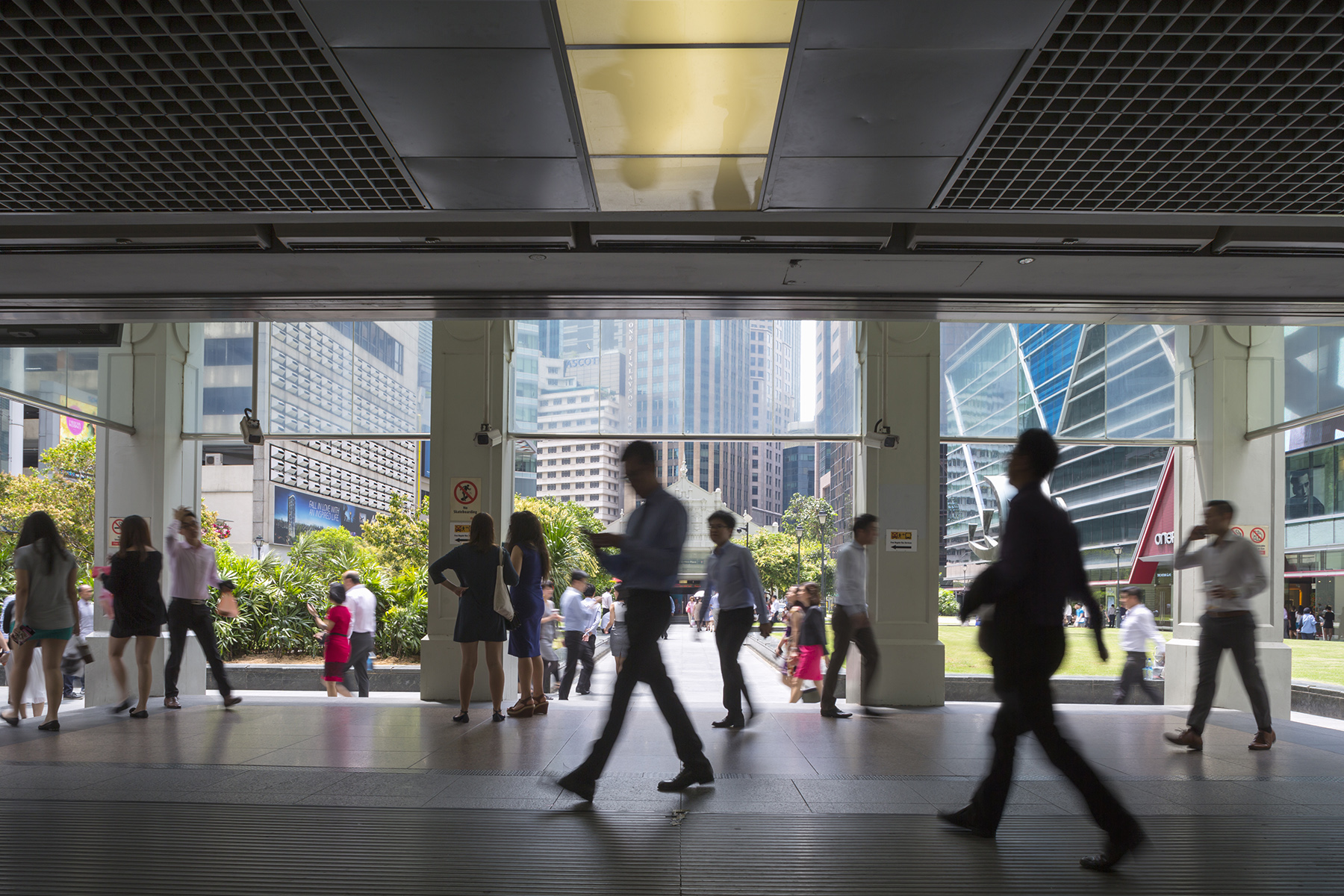
Companies in Singapore also employ foreign workers under the ‘S’ Pass, which is designed for mid-skilled workers and comes with a lower income threshold of S$3,300 (S$3,800 in financial services). The same rules apply for dependants as with the Employment Pass. Depending on the industry, employers can only recruit under the ‘S’ Pass up to a quota of 10–15% of the total workforce. They must also pay a levy.
You can apply for permanent residency after working for at least six months with an Employment Pass or ‘S’ Pass. The application process may take up to six months.
However, getting permanent residency isn’t a given. The Immigration and Checkpoints Authority (ICA) will consider a range of criteria, including:
- Your age
- Qualifications
- Family profile
- Commitment to Singapore
- Ability to contribute to the economy
EntrePass
If you’re setting up a company in Singapore, you may be able to qualify for an EntrePass – an employment pass designed for entrepreneurs and innovators.
Unlike the Employment Pass and ‘S’ pass, the EntrePass can be used to apply for permanent residency after the age of 50. To qualify, you’ll need to meet the government’s criteria as an entrepreneur, innovator, or investor.
There are also specific rules around bringing your family to Singapore. For example, your total annual business spending must be at least S$100,000 to bring your spouse or children. Additionally, you must employ between one and three full-time employees.
Investor visa (Global Investor Programme)
Foreigners investing significant sums of money into Singaporean businesses may be able to obtain permanent residency under the Global Investor Programme (GIP), which the Economic Development Board (EDB) regulates. You must invest at least S$2.5 million in Singaporean businesses, To qualify for the program.
One of the following must apply:
- You’re investing in a new or expanding business in Singapore
- You’re investing in an EDB fund that supports Singaporean companies
- You’re investing in a new or existing wealth management company that manages assets of at least S$200 million.
What is Singapore’s retirement age?
The national retirement age in Singapore is 63, though this is set to rise progressively until it reaches 65 in 2030.
Singaporean citizens and permanent residents can draw a retirement income through their CPF pension (more below) from the age of 65. Instead, expats without permanent residency can save into the Supplementary Retirement Scheme and withdraw some of their savings at ages 55 and 65.
Pensions in Singapore
There is no national state pension in Singapore.
Singaporean citizens and permanent residents contribute to the Central Provident Fund (CPF) via mandatory social security payments. The CPF provides a pension income in retirement.
Internationals without permanent residency can grow their retirement income by contributing to the Supplementary Retirement Scheme (SRS).
Central Provident Fund
The Central Provident Fund (CPF) is Singapore’s social security scheme. It covers around four-and-a-half million people. Mandatory contributions from employees and employers fund the system. Employees contribute a maximum of 20% of their income, and employers a maximum of 17%. The amount payable varies depending on your age and income.

Contributions are divided into three accounts:
- To help fund homeownership
- To fund retirement income
- To fund healthcare
At 55, members can find out how much money they’ve got in their retirement account and how much they’ll need to achieve the basic and full pension sums set by the government when they reach 65. Those with at least S$60,000 in their account when they turn 55 are automatically enrolled in CPF Life – an annuity-based scheme that provides an income for life.
Those not enrolled in CPF Life are paid a pension under the retirement sum scheme until the age of 90 or when their savings run out, whichever is sooner. Policyholders can withdraw some of their savings as a lump sum at the ages of 55 and 65.
Supplementary Retirement Scheme (SRS)
If you don’t have permanent residency, you can save using the Supplementary Retirement Scheme (SRS), administered by three banks. Foreigners can deposit up to S$35,700 into an SRS account each year, calculated as 35% of a maximum income of S$102,000.
The SRS offers significant tax advantages. Expats reduce their taxable income by contributing, thereby benefiting from tax relief on their contributions. Employers can also make contributions, which are counted towards the maximum cap. SRS accounts earn meager interest rates, but you can invest in savings.
Account holders can withdraw their money penalty-free from their statutory retirement age, either as a lump sum or over 10 years.
Alternatively, policyholders can buy an annuity to ensure they get a long-term income in retirement.
Occupational pensions
Occupational pensions in Singapore are uncommon, with employers contributing to employee CPF funds instead. The government has phased out a pension scheme for civil servants, leaving the Savings and Employee Retirement Plan for armed forces personnel the only notable occupational pension scheme.
Transferring an international pension to Singapore
If you have a pension in your home country, you’ll need to decide whether you want it paid there or transferred to Singapore. This isn’t a straightforward decision; in some cases, you’ll need to pay a fee to transfer your savings.

The exact rules will vary from country to country, so it’s recommended that you take expert advice on your options. For example, Singapore doesn’t appear on the UK’s approved Qualified Recognized Overseas Pension Scheme (QROPS) list. This means overseas transfers will be subject to charges if you’re a retiree with a UK pension.
Does Singapore tax pensions?
Income that originates in a foreign country is not taxable in Singapore, so if you can transfer your overseas pension, you won’t need to pay Singaporean income tax on it. Likewise, citizens and permanent residents in Singapore don’t pay taxes on their CPF pension income.
Additionally, withdrawal from the SRS after the statutory retirement age benefits from 50% tax relief. If you take funds out before your retirement age (aside from in exceptional circumstances such as illness), you’ll pay tax on the full withdrawal and be subject to a 5% penalty.
Best places for expats to retire in Singapore
Two important factors for pensioners will be access to quality healthcare and the ability to get around easily with public transport. The city-state of Singapore offers both, no matter where you live. However, the overall cost of living and housing is expensive.
Singapore does not have dedicated retirement villages like many other countries. Instead, pensioners choose housing based on their needs, preferences, and budget and, if needed, make use of home care services, such as:
- Nursing (e.g., medications, wound care, monitoring vital signs)
- Assisted daily living (e.g., bathing, clothing, mobility)
- Companionship/caregiving (e.g., house cleaning, grocery shopping)
- Physical therapy
- Palliative or hospice care
Seniors often join social or sports clubs for people above 65 to find peers and enjoy a sense of community.
Sentosa
Retirees looking for a peaceful lifestyle in a popular expat area may consider Sentosa, located off the main island’s south coast. It offers a great mix of beautiful beaches and recreational options, such as golf courses.
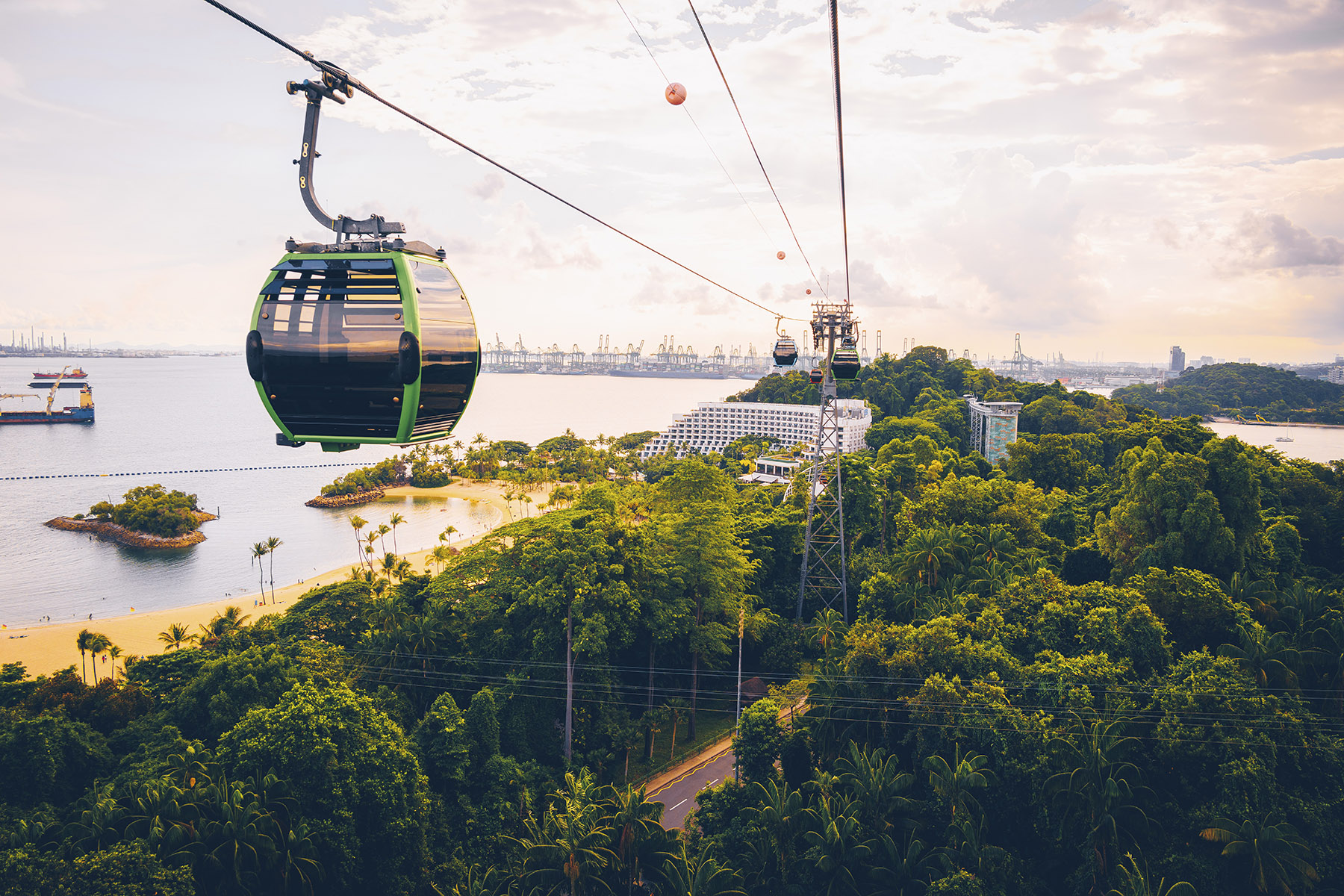
However, Sentosa is one of Singapore’s most expensive areas, with luxurious properties (i.e., the highest price tags.)
Holland Village
Holland Village is popular with expats owing to its green spaces, and it’s a good place to move if you’re looking for a more suburban lifestyle within easy reach of the center.
It’s also close to Singapore’s Botanic Gardens, a UNESCO World Heritage Site.
Tiong Bahru
Tiong Bahru is Singapore’s oldest estate. The neighborhood has excellent transport links and is well-located for exploring the city-state. Known for its Art Deco architecture, Tiong Bahru boasts a famous market and great dining options.
East Coast
The East Coast of Singapore is slightly more affordable, with many housing options, including condos, apartments, and landed properties (i.e., a house with a garden). It has a relaxed atmosphere, and if you enjoy staying fit and spending time outdoors, this area offers many sandy beaches and green areas like the popular East Coast Park.
Retirees can also enjoy diverse dining options when they do not feel like cooking.
Services, organizations, and clubs for retirees in Singapore
Getting involved in the local community by joining a club or expat group is a great way to settle into retired life in Singapore. As a starting point, you may find contacting a group designed for expats from your home country useful.
For example, there are specific associations for internationals from Australia, New Zealand, the USA and UK:
- Australian and New Zealand Association (ANZA)
- American Association of Singapore (AAS)
- British Association of Singapore (BA)
Singapore Expats provides a forum for people moving to Singapore, which you may find helpful to learn about events and gatherings near you. Additionally, you can look up local groups for your area on Facebook or MeetUp.
Wills and inheritance in Singapore
Wills in Singapore
If you own assets in Singapore, it makes sense to write a Singaporean will or testament, even if you already have one in your home country. This will make it easier for your executors to manage the division of your assets.
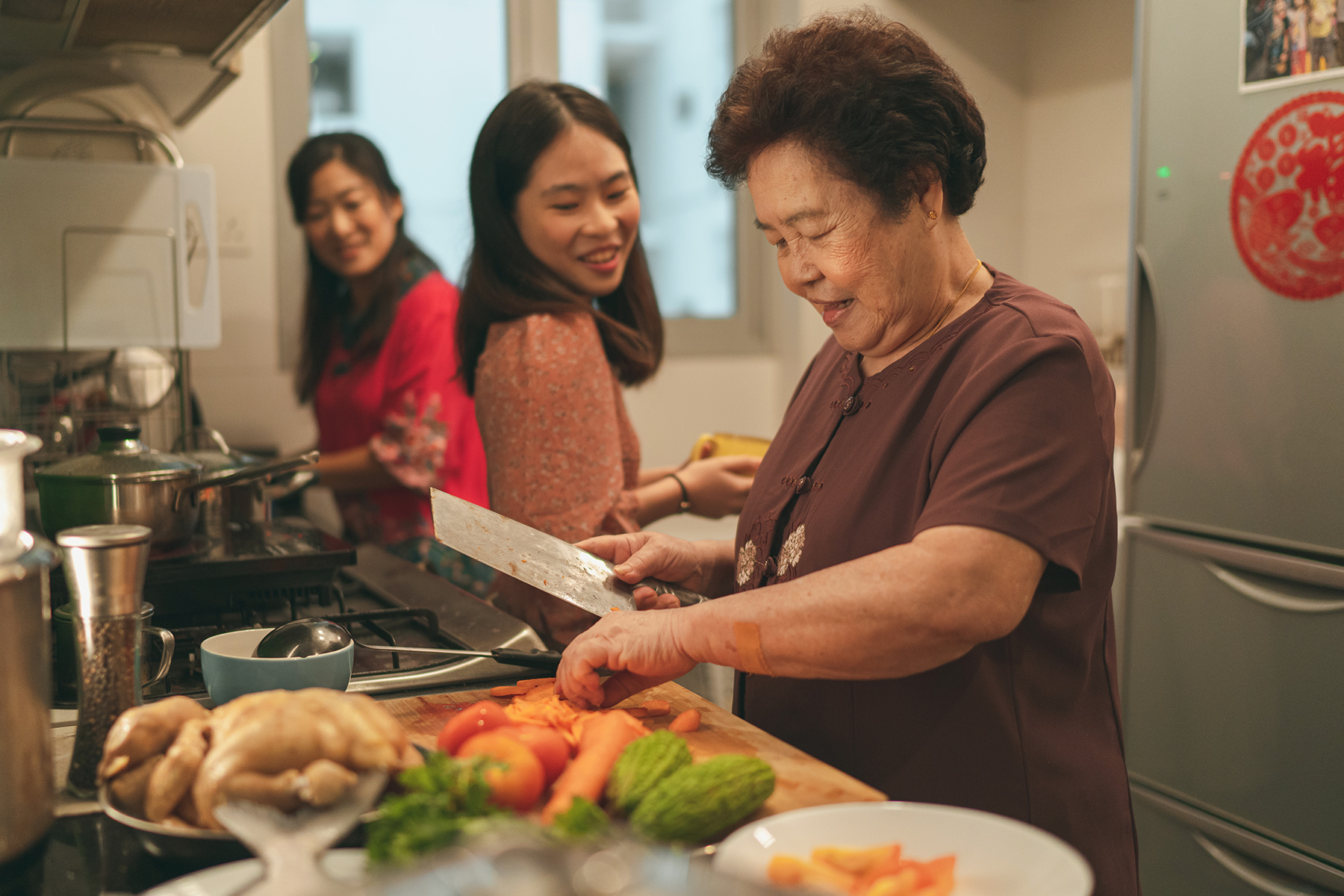
If you own assets in more than one country and are unsure as to whether you should have two wills or one, it is recommended that you seek advice on your options from a legal expert. This is because your decision could have tax implications, and having a second will could, in some circumstances, invalidate your first one.
Inheritance laws
If someone dies in Singapore without leaving a will, their assets will be divided under the Intestate Succession Act. The division of assets depends on the number of surviving beneficiaries and their relationship with the deceased.
For example, if the deceased had a spouse but no children, the spouse would inherit the whole estate. However, if the deceased had a spouse and children, 50% of the estate would go to the spouse, and the other half would be distributed equally among the children.
The government’s My Legacy website details the distribution of assets in non-standard scenarios.
Inheritance tax
There is no inheritance tax in Singapore. The Singaporean version of inheritance tax – estate duty – was abolished for deaths after February 2008. However, foreigners who inherit Singaporean property may need to pay stamp duty if they resell it within three years.
Healthcare for pensioners in Singapore
Social security contributions fund Singapore’s public healthcare system, providing subsidized medical treatment. However, this is not available to expats living in Singapore unless they have permanent residency status and make CPF contributions.
This means you have a couple of choices when moving to Singapore. You can either pay for public healthcare as and when you require it or sign up for a private health insurance policy, such as with:
Private healthcare in Singapore is very common and may offer access to a wider range of services and shorter waiting times.
Expats moving to Singapore are not required to have health insurance as a condition for granting a visa.
Access any other support services when you retire in Singapore
Singapore offers financial support schemes for retirees, though they’re only available to people with Singaporean citizenship.
Support options include health insurance top-ups and payments for low earners who may struggle with finances in retirement.
Senior citizens living in Singapore can also benefit from day-to-day discounts, including at grocery stores, cinemas, gyms, and recreational activities.
Useful resources
- Central Provident Fund (CPF) – Singapore’s social security scheme and pension scheme
- Supplementary Retirement Scheme (SRS) – voluntary retirement fund for non-residents
- Ministry of Manpower (MOM) – official information on the Employment Pass
